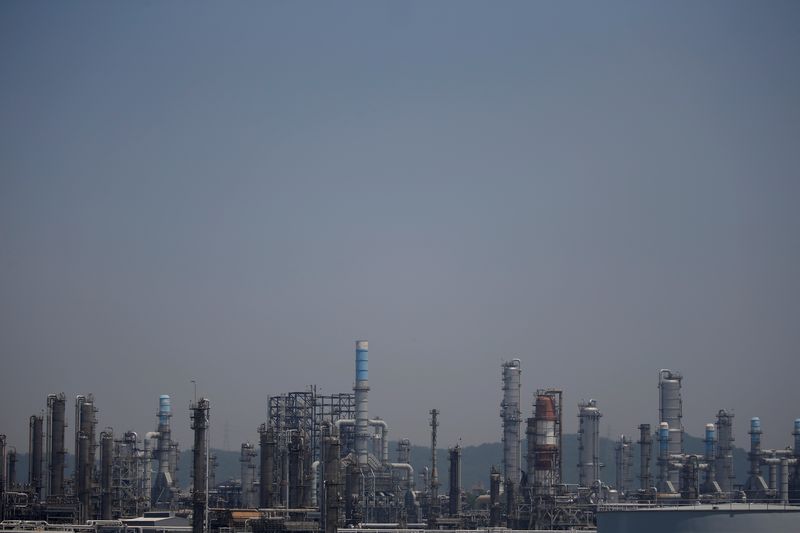South Korea factory activity shrinks in April, marks longest downturn in 6 years – PMI
2023.05.01 22:07

© Reuters. A factory is seen in Incheon, South Korea, May 30, 2016. REUTERS/Kim Hong-Ji/File Photo
SEOUL (Reuters) – South Korea’s factory activity shrank for a 10th consecutive month in April and for its longest streak in six years, a survey showed on Tuesday, underlining the weak global demand conditions that continue to undercut the domestic economic recovery.
The S&P Global (NYSE:)’s seasonally adjusted purchasing managers’ index (PMI) for South Korean manufacturers stood at 48.1 in April, a slightly better outcome than the six-month low of 47.6 reached in March.
However, it remained below the 50-mark that separates expansion from contraction for the 10th straight month in a row, the longest such streak since May 2017.
“April PMI data provided further evidence that South Korean manufacturing firms continued to struggle in the face of the current global economic weakness,” said economist Usamah Bhatti at S&P Global Market Intelligence.
“Subdued client demand both domestically and internationally were central to the latest deterioration and contributed to a solid reduction in new orders.”
Sub-indexes showed output shrank for a 12th month, but at the joint-softest pace in the streak. New orders fell for a 10th month, with the pace also easing from the previous month.
New export orders fell for a 14th month, at a pace only slightly milder than the month before. The survey noted that sluggish demand in key markets such as China, Japan and Europe contributed to the weakness.
On the plus side, the survey also showed input price inflation eased to the slowest rate since November 2020, with firms reporting falling prices for materials, such as semiconductors, despite higher oil prices and weaker exchange rates.
Output price inflation also eased to the slowest in its 31-month rising streak, mainly due to discounting by firms looking to stimulate demand.
Suppliers’ delivery times shortened for the first time since October 2019. Firms linked this to a better supply of raw materials, most notably for semiconductors.
Still, manufacturers’ optimism for future output weakened to a four-month low, as concerns grew over the length of the current economic downturn and the timing of the recovery.








